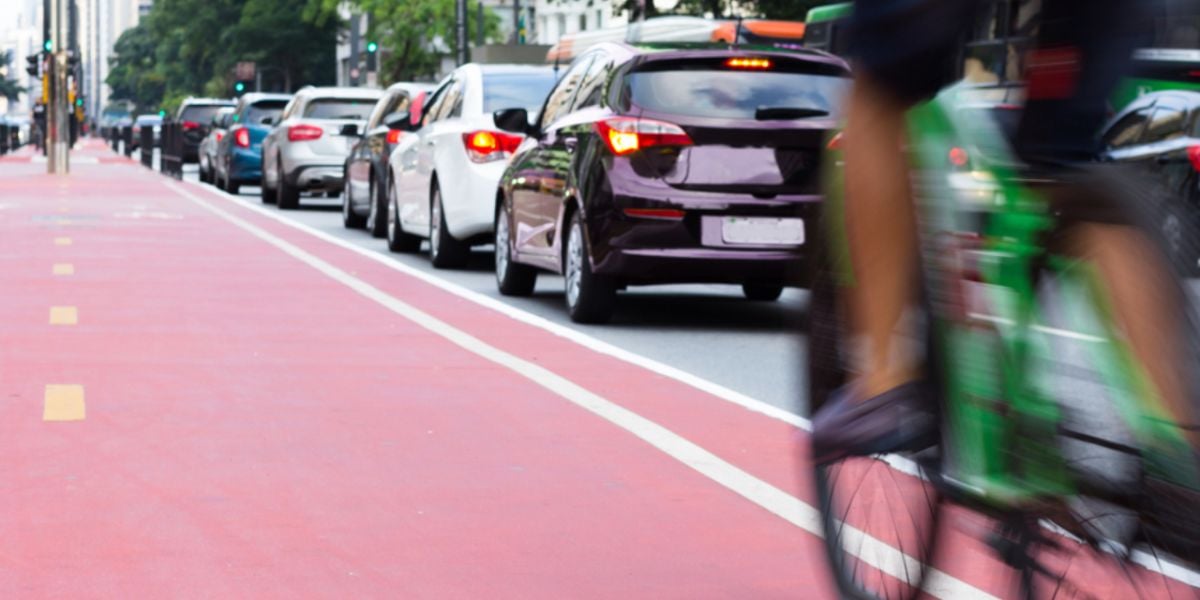
Taxis in Brazil are relatively inexpensive in comparison to North America and much of Europe. In most cities, taxis use a meter, which in some locales is referred to as a taximeter, and in others as a relógio (literally “clock”). In some smaller towns, you pay a flat rate by zone; look for the fare map, which is usually posted in the rear window.
Taxis
Licensed taxis are generally well-marked and easily recognizable. You can hail a taxi on the street or ask where the nearest taxi rank is. After dark, it's advisable to call for what's termed a radio taxi. At bus terminals and airports, you'll see kiosks touting various taxi services. You'll have to pay in advance, so there's no guessing about the price. However, you'll also almost certainly be paying a premium. You can opt instead to head directly for the taxi rank and then pay based on the meter.
Important:
Never accept an offer of a “special price” from a taxi driver unless you know the going rates, as you'll almost certainly pay an inflated fare. Insist that they use the taximeter instead.
Good to know:
Uber is now common in Brazil. Rates often are half those of taxis.
Metros
A few of Brazil's larger cities, including Rio de Janeiro, São Paulo, Belo Horizonte, and Salvador have metro systems. Rio's metro system has recently been extended, and São Paulo's is quite extensive. Metros are an inexpensive and rapid way of getting around. Metros generally integrate with specially designated buses, which extend the effective coverage of the system.
If you plan to remain in a city for a few days or more, inquire about metro passes. Sometimes, the fares will be slightly discounted. Even if they aren't, using a rechargeable card is more convenient than standing in a line each time you want to use the metro.
Fares and details change, so visit the links below for current information,
Useful links:
Local buses
Most cities in Brazil are well covered by local buses. Fares vary by city, but typically run about $1 to $1.25 (USD). If the city has a metro system, you can buy an integrated ticket that permits you to ride both the metro and a bus at a discounted fare.
Bus routes are posted at most bus stops. Some cities also have websites you can consult or simply ask a local which bus passes by your destination.
Good to know:
Most local buses in Brazil today are equipped to accommodate wheelchair-bound passengers.
Planes
As Brazil is a huge country, flying is often the most practical way of getting about. Several airlines offer domestic service. Some of the largest are LATAM, GOL, Azul, and Avianca. You'll be pleased to discover that most fleets are new, and in-flight service is up to high standards.
It's possible these days to find deeply discounted airfares, although it might initially be difficult right after the pandemic. Be sure to check out Brazilian sites such as eDestinos, MelhorDestinos, and Voopter. But when you find a discounted fare, check to see if taxes are included or if there are additional fees for checked bags, better seats, etc.
If you'd like to visit a few destinations within Brazil, consider purchasing a Brazil Airpass, available from GOL, Azul, and LATAM (immediately post-pandemic, it'll be difficult to get available airpasses, but keep trying). The price will depend on the number of destinations, but is quite reasonable. To purchase the Brazil Airpass, you'll first need to purchase a return (round-trip) ticket to Brazil. Also note that date and destination changes aren't permitted once an airpass has been issued, so plan carefully.
Good to know:
If you're flying through Rio to another destination in Brazil, you may be able to request a stopover in Rio of up to three days at no additional charge. This service is rarely advertised.
Useful links:
Rio de Janeiro's Galeão Airport
Inter-urban buses
Buses connect most major cities in Brazil and can be an enjoyable and reasonably-priced way to travel if you aren't in a hurry. Buses, as a rule, are clean and well-maintained. Sometimes, executive-class buses are available, which offer wifi and other amenities. Buses stop every two to three hours at well-equipped and well-maintained rest areas.
Important:
Often, you'll have to present an ID at the time of boarding, so be sure to have your passport or other photo ID handy.
Bus lines tend to be regional. Accordingly, there are many companies in Brazil, each serving limited geographies.
Useful links:
Renting a car
If you'd like to explore several destinations in an area, or visit areas not served by public transport, you may opt to rent a car. These days, it's an easy matter. Typically, you only need to present your passport, a valid driving license from your home country, and a credit card or debit card with a chip. You'll also need to be at least 21 or 25 years old, depending on the company. Contrary to what you may have read, you don't need an international driving license.
Good to know:
Prices vary widely, so shop around. Prices may or may not include insurance, and may or may not include unlimited mileage.
Most cars in Brazil today are “flex”, meaning they can use gas and ethanol or methanol fuel; some cars are “total flex”, meaning they can also use natural gas. Worried about how to fill up? There are no self-service stations in Brazil; just tell the attendant what you need and they'll do the rest.
Road conditions vary greatly across Brazil. While it's difficult to generalize, primary roads are generally better in the south and southeast, and poorer in other regions. Secondary roads are often narrow and patched, so allow more time than you would back home. Many highways aren't lighted, so try to avoid nighttime driving.
Many major highways in Brazil are toll roads. When planning your trip, verify whether you'll need to pay tolls. If so, have the requisite cash on hand.
Useful links:
Trains
There are few inter-urban passenger trains in Brazil these days. There are a few scenic trains, but these typically run short distances and are pricey. For long-distance travel, buses and planes are better options.
Useful link:
We do our best to provide accurate and up to date information. However, if you have noticed any inaccuracies in this article, please let us know in the comments section below.








